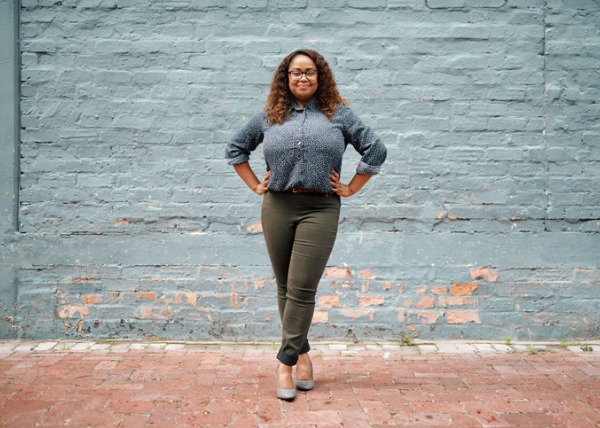It’s time to give up the negative connotations about neediness once and for all. Asking for what you need is the fast-track to self-empowerment. Here’s why!
Being needy is not the same as having needs. In the literal sense, needy is a noun—someone being emotionally clingy, overly-dependent, or basically insecure. Whereas, need is verb—eluding to potentiality. Either way, “need” has become a four-letter word with a powerful stench, particularly when it comes to relationships.
For example, being needy is considered a “red flag” for my single clients looking for love and across the board often seen as a sign of weakness or unforgivable self-centeredness. The slightest whiff of neediness for some and poof, “I’m out, you’re gone, it’s over.” It seems we would much rather be in the pseudo power position, judging others versus looking at the truth about our own neediness.
Pseudo, of course, because this façade of invulnerability inevitably comes to an end. It’s a survival thing! Eventually, we can no longer mask our own insecurities, clinginess, and need to depend on others—that’s when we become depleted and resentful. This pain is a great motivator to face the truth that we are, for some reason, pretending we have no actual human needs. Not to worry, I am going to help you better understand and embrace your neediness and feel empowered too!
Do you disguise yourself as low-maintenance, believing the fewer needs you have the more attractive you are? Have you convinced yourself that having needs is weak or shameful? Do people who have no problem asking for what they want grate on your nerves? Do you fantasize about being swept off your feet by someone who will know what you need without your having to ask?
Well my friend, you are not alone. Millions of us have learned to camouflage or ignore our needs to the point of PN: pathological needless-ness! We can’t stop minimizing what we need and are uncomfortable with or do harm to ourselves (or another) to avoid asking for help.
The problem is, we are designed to need each other. “Dependency is a fact, not a choice or a preference,” when our basic relationship needs are not met “we experience a chronic sense of disquiet and tension that leaves us more exposed to various ailments” (Levine, 2011, p. 33, Attached).
The trick, however, is letting others know what your needs are.
Here are some tips to help you identify PN and restore balance to your gorgeous, needful self:
What do I need?
I put relational needs into two categories: needs for connection, trust, and safety; and needs for respect, integrity, honesty, touch, communication, intimacy, compassion, empathy, generosity, and care. What other important needs can you think of? Take time and write them down!
Why do I minimize my needs?
We may minimize our needs because we’ve felt a burden before or we know what it’s like to feel burdened by another. We may not want to feel indebted or obligated, fear rejection, or we may like feeling independent. Perhaps, in a culture that exalts independence, we hope to reap the rewards of the seemingly needless. Write about why you minimize your needs. The problem of PN occurs when downplaying our needs becomes an automatic response: Then we begin to feel shame, anger, and frustration. We may see our own unmet needs as neediness in others, feel jealous of others who appear to get their needs met, or resent people whose needs we are meeting.
Who are the best people to ask for what I need?
Some people are better equipped/prepared than others to meet your needs. Find out who is most likely to be able to respond positively rather than asking someone who isn’t reliable or someone you are hoping will change. Ask yourself: Is this person capable of giving me what I need? Do they have a history of being reliable and resilient in relationships? Is there typically a balanced exchange between us? If the answers are yes, then chances are you will get your needs met. Knowing who to ask can set you up for success and help you avoid unnecessary vulnerability.
What if someone says no?
Even when we know who to ask, we may be disappointed. We don’t want to feel rejection from or resentment toward others. We may have been hurt in the past and have a hard time believing it could be different this time. Keep in mind the person you are asking isn’t responsible for your historical narrative. They care about you and want to be helpful. If they say no, trust it’s for a good reason and ask someone else. I recently had to ask four people to dog sit before I found someone. “No” can be the response to your request, without being a rejection of you. We are all busy and have full lives. Keep asking!
Will I ever feel good about being needy?
Reminder: There is a difference between being overly needy and having real needs. Those of us who resist asking for help need to find in ourselves the place where stretching to meet our own needs begins to negatively affect us. When is it a denial of the very human need for support, connection, and help
So, by now you have realized (or remembered), you are not alone. As humans, we are designed to have needs. With this enhanced awareness you will be able to better notice this pattern when it arises again, where you might find your-self-judging or disguising your needs. And from one recovering PN to another, try and be gentle with yourself. You are, after all, creating a new neural pathway!
This takes time and practice, practice, practice! Trust your inner-self, let your heart be your guide. And keep in mind, when you don’t allow another to be there for you own neediness, you deny them the same joy you feel when offering them genuine support.
About the Author
Maryanne Comaroto, PhD is a relationship specialist with a private practice in Marin County. One of her core beliefs is that great relationships begin within. She’s a researcher, author, and teaches throughout the United States. She hosts an internationally syndicated radio program about new approaches to relationships. For more information visit MaryanneComaroto.com











